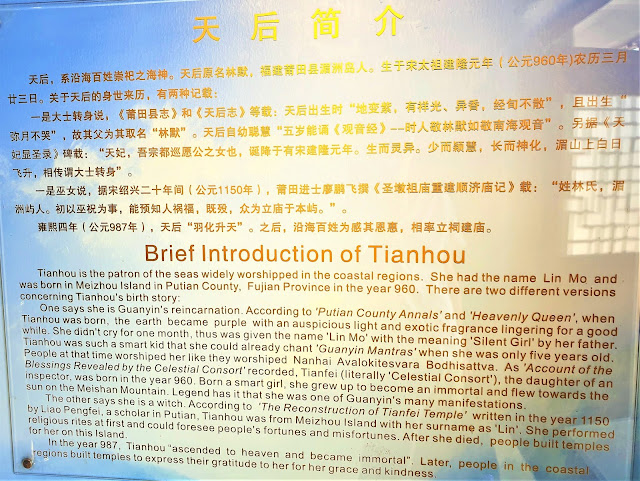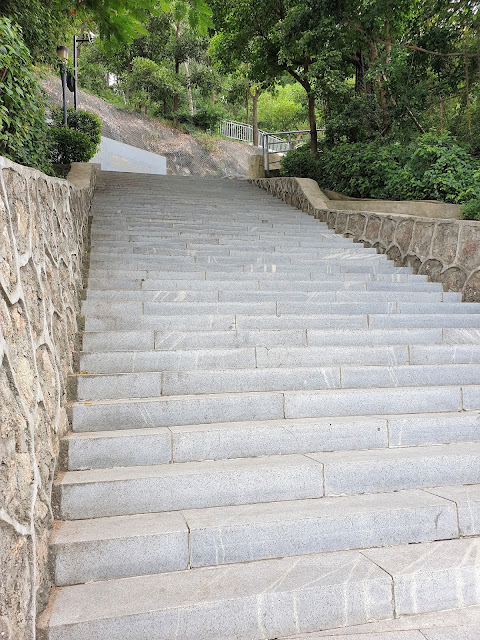In July 2019, I was working in Guangzhou, or Dongguan to be exact. During the weekend, I visited Shenzhen, the city at the door of Hong Kong.
Shenzhen used to be a sleepy town, as compared to Hong Kong, the Pearl of the Orient.
The commercial hub of modern China in a glance
Taking the renowned High-speed rail, I travelled from Dongguan Station to Shenzhen Station in 50 minutes. The distance is around 100km. This means, the average speed was around 200km/hr. We haven't considered the stops and deceleration along the way.
Comfortable and orderly - My only comment is that some English signs could help
I suppose you don't find English signs in France too.
Checked-in to a hotel called Idea Jar (青年锦囊) Hotel, which was full of books
With a China Simcard, you could register to become a member via WeChat, and your room price gets deducted from RMB 206 (USD 30) to RMB 170 (USD 24) per night. It was a small windowless room, with a bed, and PC (with a huge monitor and an expensive looking headphone). I reckon young people may rent a room to play computer games the whole night, without being monitored by their parents. Anyway, I stopped planning computer games since I went to college. I felt that there are more interesting out there.
If you plan to travel around China, having a China simcard is truly useful, and yields lots of discounts. However, a foreigner can only purchase a 'tourist' simcard at the airport. Normal phone shops won't sell you a simcard if you are a foreigner. The downside is, you can't access all banned applications (e.g. Whatsapp) and websites (e.g. Gmail, Facebook). You could use these apps or websites if you are on data roaming.
It was July, and the height of summer. The midday heat was at full blast, and I was happy to rest and stay indoors. Afternoon naps during travels are always welcomed.
I ventured out around 4.30pm, to find the evening breeze and thick clouds. I chilled at Central Park (中心公园), watched the locals exercise, play badminton and fly kites.
The skyscrapers were impressive
The next morning, I sat for an hour on the metro to Chiwan (赤湾) to visit the famous Tianhou Temple (天后宫). Tianhou Temples are actually a scattered throughout South East Asia. In fact, I grew up visiting one of them just 15 minutes from home (in Skudai).
Shenzhen city heritage site
Millions of coastal Chinese left after the Opium War - This temple became the last sight for many
While working overseas and enduring hardships, the Chinese would build their own temples, and many build Tianhou Temples, also known as Mazu (妈祖) Temples, to find some respite and confidence.
People who go out to sea are at the mercy of the unknown
So many turn to divine intervention for some spiritual support
This temple though, seems to have been built during the Song Dynasty (960 - 1279 CE).
Throughout the years, the temple witnessed great events
Tianhou or Mazu means Empress of Heaven
Click to enlarge
Today, Mazu looks out at cranes and cargo ships
Not too far away, stood Wen Tian Xiang (文天祥) Memorial Park. I think this was a familiar name to those who knows about Chinese history and literature, but not a lot know who he was. In fact, the temple that I always visit in Semabok, Melaka - 三忠宫 was build to commemorate Wen Tian Xiang and two other comrades (陆秀夫 and 张世杰) during final days of Song Dynasty (1279).
Brilliant calligraphy
So 704 years after he was hanged in Beijing, I was born (Click to enlarge)
The Song Dynasty was apparently witnessed the height of Chinese civilization in arts and culture.
Beside the park was the Look-out Point (古炮台)
Hong Kong on the horizon (far left)
Downtown Shenzhen
It felt like taking a shower
Truly like cities with mountains and green lungs nearby - Natural ones of course
I took the Metro (and a nap) back to Central, to a place call 景田 to visit the famous 莲花山公园 (Lotus Hill Park).
Alas, another hill to hike, but it was worthwhile. But this is no ordinary hill. This hill commemorates one of the most important leaders of modern China - Deng Xiaoping.
Deng grew up in the mountainous Sichuan province, and at the age of 16, went on a work-study program in Paris, and later Moscow. He is famous for the 3-falls and 3-rises in politics. Deng came to power after the death of Mao, and took over an almost defunct society, ravaged by decades of mismanagement, poverty and famine. Deng Xiaoping was instrumental in opening up and modernizing China in the 80's. The cornerstone was to establish ties with the US. His 9-day visit to Washington DC in January 1979 (departed Beijing on the 1st day of the Lunar New Year) to meet President Jimmy Carter was nothing short of a thriller. It was his last overseas trip.
This 2-minute preview of the movie 'Deng goes to Washington' depicts the 9 exhilarating days Deng had in America:
More than 80 events, press conference, and the hopes of 700 million countrymen - For 74 year-old (If you want the link for the movie, let me know)
I am sure Deng did not complain of jet-lag, or the cold January winter. I visited East Coast / DC last year in March, and it was freezing! The battle-harden Deng, who went through wars and political purge/blackmail, took the threat of being assassinated nonchalantly. It was 1979, and the cold war was on-going. Vietnam war was not pleasant, while the issue of Taiwan was complicated.
After returning from US, Shenzhen became the focus of Deng, and was one of the earliest cities to 'open up'.
Today, Deng's bronze statue stands tall on top of Lotus Hill
Many elder Chinese entrepreneurs pay their respect annually during Deng's birthday or death anniversary. China would have been really different if not for Deng.
In fact, the animosity between US-China relationship today begs for a more detailed look into history and the hardwork that was done those years.
Deng was also involved in the meetings for the reunification of Hong Kong from Britain and Macau from Portugal in the early 80's. He was able to to keep China unified during the end of the cold war in late 80's, which saw the Soviet Union and Berlin Wall collapse.
Deng Xiaoping will be remembered for generations to come
Looking at the city of Shenzhen today, Deng would be proud
One of the lessons learned from this trip, or Deng specifically, is his bravery, wit and determination. He was very direct and pragmatic. He wasn't afraid of the unknown, of China being assimilate into a capitalist state, but was willing to learn from the west and US. He once confide to Canada's Prime Minister how backward China was, and he only had one aim, which is to modernize, industrialize and lift his people out of poverty. He didn't let emotions affect his judgements either. He was mostly unfazed with challenges and adversity.
He selflessly gave his life for his people and country, and created a new world order, which is unfortunately on the brink in recent months.
Shenzhen is a legacy and prove, that anyone who works hard, could succeed.






















No comments:
Post a Comment